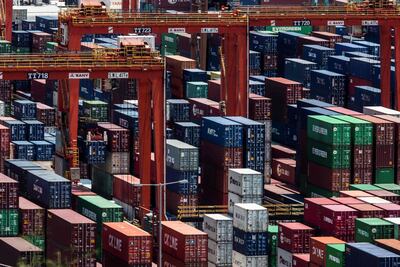Hundreds of thousands of seafarers – the same people who have been sustaining global trade to bring us essential items – have been unable to disembark their ships at the end of their normal tours of duty after the onset of the coronavirus pandemic.
Hundreds of thousands of others have been unable to replace them. Across the globe, successive crew change postponements rapidly turned what seemed at first like a temporary measure taken at an unusual time into a full-blown crisis.
A breakthrough deal struck at the International Maritime Crew Change Summit last week saw ministers from more than a dozen countries commit to work to end a humanitarian crisis which is unfolding at sea. Covid-19 has led governments across the globe to impose restrictions on international travel.
These restrictions have been effective in reducing the transmission of the virus from country to country but have ultimately trapped hard working men and women in an unsustainable limbo. Ordinarily these seafarers ensure that nations can prosper and grow. They are the unsung and unseen heroes of global trade. Blanket travel restrictions are now threatening to negatively impact the recovery and the supply of vital goods.

We all rely on around 1.2 million men and women work at sea who work seven-day weeks to keep us all supplied. Their work is often unseen and out of mind but because of what they do, those of us on land have the necessary food, medicine and fuel that has held societies together during the current crisis. Every one of these seafarers is used to spending many months at sea, away from their families and loved ones, and approaching their responsibilities with the utmost professionalism. However, doing it for too long is dangerous, and can have a knock-on effect on global trade. This is why crew change – the replacement of one group of seafarers with another – is absolutely vital and why this summit was so needed.
Their protracted time at sea has taken a psychological toll as well as a physical toll. It has put operations at risk. Despite the lifting of lockdown restrictions in many countries, including the recent welcome announcement from the Dubai Maritime City Authority, crew change is still taking place at only about 20 to 30 per cent of its normal level. Every day, the number of seafarers due to transfer – estimated to be 400,000 – rises. Seafarers from important labour supply countries, such as the Philippines, China, India and Eastern Europe, have not been able to get where they needed to go in the world because of travel bans and excessive bureaucracy put in place by governments. Visa issuing restrictions have represented further obstacles affecting the ability of seafarers to travel.

In making their commitment governments have agreed to work to ensure that seafarers can go about their business safely without increasing the risk of transmission of this dreadful virus. It ends the usual visa restrictions so seafarers can disembark ships and travel freely. It permits inexpensive commercial flights to come into and out of the country so seafarers can return home to their families. This is very welcome from those countries who have chosen to show leadership, but this is still not happening quickly enough. Without these concrete, large-scale changes, crew change cannot take place at the rate necessary to protect the health of seafarers and the trade that rests so much on their shoulders.
We welcome the leadership of Suhail Al Mazrouei, Minister of Energy and Infrastructure, and the UAE government in signing this agreement. As one of the world’s top five shipping hubs, the UAE’s actions send an important signal. However, there are still seafarers unable to crew change. The UAE can continue to set an example to the rest of the world if even more commercial flights are allowed into and out of the country, and seafarers are given visa exemptions so they can travel seamlessly.

We need collective action to end a huge crisis that has already provoked vocal interventions from Pope Francis and the UN Secretary General Antonio Guterres. Both voiced their concern and called for an urgent resolution to this crisis. The industry has done the hard work: we have co-operated closely with the UN and set out a 12-step plan for facilitating and accelerating crew change. These steps – safe, effective and easily taken by any government – entail, for instance, classifying merchant seafarers as essential workers, and creating facilities for testing and quarantine.
Indeed, the International Chamber of Shipping has led the charge to find a workable solution for our key workers. This summit was the first time since the G20 that ministers had gathered to assess the impact of such restrictions on shipping.
We cannot overstate the urgency for action. A cloud of uncertainty still hangs over the world’s economy and each day wasted risks bringing fresh complications. Now is the time for countries around the world to show leadership to end the humanitarian crisis at sea and avert a global trade logjam by ensuring that commitments turn into urgent action.
Guy Platten is the secretary general of International Chamber of Shipping


